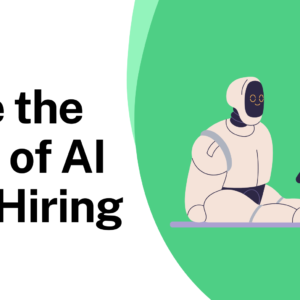Artificial intelligence legal tools are revolutionizing the way lawyers conduct research, making it faster and more efficient. AI in Legal Research is becoming increasingly important in modern legal practices, enabling lawyers to focus on higher-level tasks. With the help of AI, lawyers can analyze large amounts of data, identify patterns, and make more informed decisions.
The use of AI in legal research is transforming the way lawyers approach case studies. By leveraging artificial intelligence legal tools, lawyers can streamline their research process, reduce costs, and improve outcomes. As the legal profession continues to evolve, the adoption of AI in Legal Research is expected to grow, changing the way lawyers work and interact with clients.
Introduction to AI in Legal Research
AI-powered legal research is an innovative approach that combines human expertise with machine learning algorithms to analyze legal data. This approach enables lawyers to gain deeper insights into case law, statutes, and regulations, making it easier to build strong cases. With AI in Legal Research, lawyers can quickly identify relevant precedents, analyze legal concepts, and predict potential outcomes.
Key Takeaways
- AI in Legal Research is improving the efficiency and accuracy of legal research
- Artificial intelligence legal tools are enabling lawyers to focus on higher-level tasks
- AI-powered legal research is transforming the way lawyers approach case studies
- The adoption of AI in Legal Research is expected to grow in the legal profession
- AI in Legal Research is combining human expertise with machine learning algorithms to analyze legal data
- AI-powered legal research is helping lawyers to build strong cases and predict potential outcomes
Introduction to AI in Legal Research
Legal research has undergone significant transformations over the years, from traditional methods to more advanced, technology-driven approaches. The introduction of machine learning legal research has revolutionized the field, enabling lawyers to conduct more efficient and accurate research. Legal tech AI solutions have become essential tools for legal professionals, providing them with the ability to analyze vast amounts of data and identify relevant information quickly.
The evolution of legal research tools has been remarkable, with the integration of artificial intelligence (AI) being a major milestone. AI-powered legal research platforms have made it possible for lawyers to automate routine tasks, such as document review and data analysis, allowing them to focus on more complex and high-value tasks. This has not only improved the efficiency of legal research but also enhanced the overall quality of legal services.
Key Developments in AI-Driven Legal Research
- Increased use of machine learning algorithms to analyze legal data
- Development of legal tech AI solutions for document review and analysis
- Growing adoption of AI-powered legal research platforms by law firms and legal departments
As the legal profession continues to evolve, it is likely that we will see even more innovative applications of machine learning legal research and legal tech AI solutions. By embracing these technologies, legal professionals can improve the efficiency, accuracy, and quality of their services, ultimately benefiting their clients and the legal system as a whole.
Key Benefits of AI in Legal Research
The integration of AI in legal research has revolutionized the way lawyers and legal professionals conduct their work. With the help of automated legal research, lawyers can now focus on more complex and strategic tasks, leaving mundane and time-consuming tasks to AI-powered tools. This shift has led to increased efficiency and speed in legal research, enabling lawyers to deliver high-quality results in a shorter amount of time.
AI in law libraries has also improved the accuracy of legal research, providing lawyers with more comprehensive and reliable information. By automating the process of searching and analyzing large volumes of data, AI-powered tools can help lawyers identify relevant cases, statutes, and regulations, reducing the risk of errors and inconsistencies. This, in turn, enhances the decision-making process, enabling lawyers to make more informed and effective decisions.
Some of the key benefits of AI in legal research include:
- Increased efficiency and speed in legal research
- Improved accuracy and reliability of legal information
- Enhanced decision-making and analysis
- Automation of mundane and time-consuming tasks
Overall, the use of AI in legal research has transformed the way lawyers and legal professionals work, enabling them to deliver high-quality results in a more efficient and effective manner. As the legal profession continues to evolve, it is likely that AI will play an increasingly important role in shaping the future of legal research and practice.
Popular AI Tools Used by Lawyers
Lawyers are increasingly relying on AI and legal database tools to streamline their research and workflow. AI for legal professionals has become an essential component in modern law practices, enabling them to work more efficiently and effectively. With the numerous AI tools available, it’s crucial to understand the features and pricing of each platform to make informed decisions.
Some of the leading AI platforms for legal research include LexisNexis, Westlaw, and Bloomberg Law. These platforms offer a range of tools and resources, such as predictive analytics, document review, and case law analysis. When selecting an AI tool, lawyers should consider factors like accessibility, cost, and the specific needs of their practice.
The following are some key features and pricing of popular AI tools:
- LexisNexis: Offers advanced search capabilities, predictive analytics, and a comprehensive legal database. Pricing varies depending on the specific product and subscription plan.
- Westlaw: Provides a range of AI-powered tools, including document review and case law analysis. Pricing is based on a subscription model, with discounts available for law students and solo practitioners.
- Bloomberg Law: Includes a robust legal database, predictive analytics, and a user-friendly interface. Pricing is based on a subscription model, with discounts available for large law firms and corporate clients.
By leveraging AI and legal database tools, lawyers can enhance their research capabilities, reduce costs, and improve overall efficiency. As the legal landscape continues to evolve, it’s essential for lawyers to stay up-to-date with the latest AI tools and technologies to remain competitive.
Transforming Case Law Research with AI
The use of AI in Legal Research is revolutionizing the way lawyers approach case law research. Artificial intelligence legal tools are being used to analyze large datasets of legal cases, identifying patterns and relationships that can inform legal decisions. This technology has the potential to make case law research more efficient and effective, allowing lawyers to focus on higher-level tasks.
One of the key benefits of AI in Legal Research is its ability to analyze legal precedents. By examining large datasets of past cases, AI can identify trends and patterns that may not be immediately apparent to human researchers. This information can be used to predict the outcomes of current and future cases, giving lawyers a valuable edge in the courtroom. Some examples of AI analyzing legal precedents include:
- Identifying relevant case law and statutes
- Analyzing judicial opinions and rulings
- Predicting the likelihood of a successful appeal
Predictive analytics is another area where AI is having a major impact on case law research. By analyzing data from past cases, AI can predict the likelihood of a particular outcome in a current case. This information can be used to inform legal strategy and help lawyers make more informed decisions. As AI in Legal Research continues to evolve, it is likely that we will see even more innovative applications of this technology in the field of law.
| AI Application | Benefits |
|---|---|
| Legal Precedent Analysis | Identifies trends and patterns in past cases |
| Predictive Analytics | Predicts the likelihood of a successful outcome |
| Document Review | Streamlines the review process, reducing time and labor costs |
Streamlining Document Review Processes
Law firms and legal departments are constantly looking for ways to improve efficiency and reduce costs. One area where this can be achieved is in document review processes. By leveraging machine learning legal research, lawyers can quickly analyze large volumes of documents, identify relevant information, and make informed decisions. This approach enables automated legal research to streamline the review process, reducing the time and labor costs associated with manual review.
The use of machine learning algorithms in document analysis has revolutionized the way lawyers work. These algorithms can be trained to recognize patterns and identify relevant information, allowing lawyers to focus on higher-level tasks. Some of the benefits of using machine learning legal research include:
- Increased accuracy and speed in document review
- Reduced time and labor costs associated with manual review
- Improved decision-making through data-driven insights
By adopting automated legal research tools, law firms and legal departments can gain a competitive edge in the market. These tools enable lawyers to work more efficiently, providing better services to their clients while reducing costs. As the legal industry continues to evolve, the use of machine learning legal research is likely to become increasingly important, enabling lawyers to stay ahead of the curve and deliver high-quality services to their clients.
Ethical Considerations in AI Legal Research
As AI in Legal Research continues to evolve, it’s essential to address the ethical considerations surrounding its use. One of the primary concerns is the potential for bias in AI algorithms, which can lead to unfair outcomes. To mitigate this risk, legal professionals and AI developers must work together to ensure that AI tools are fair, transparent, and compliant with legal and ethical standards.
The use of legal tech AI solutions can help streamline the research process, but it’s crucial to consider the potential consequences of relying on AI-driven results. For instance, if an AI algorithm is biased, it may produce inaccurate or incomplete results, which can have serious implications for case outcomes. To avoid this, it’s essential to implement robust testing and validation procedures to ensure that AI tools are functioning as intended.
Some key steps to address ethical considerations in AI legal research include:
- Implementing diverse and representative training data to reduce bias in AI algorithms
- Establishing clear guidelines and standards for AI development and use in legal research
- Providing ongoing training and education for legal professionals on the use of AI in legal research
By taking these steps, we can ensure that AI in Legal Research is used responsibly and ethically, ultimately enhancing the efficiency and accuracy of legal research while maintaining the integrity of the legal system.
Case Studies: Successful AI Implementations
Law firms and legal departments are increasingly adopting AI solutions to enhance their legal research capabilities. The integration of AI for legal professionals has led to significant improvements in efficiency, accuracy, and client satisfaction. One notable example is the use of AI and legal database systems to analyze large volumes of data and identify relevant precedents.
Several law firms have successfully implemented AI-powered tools to streamline their research processes. For instance, some firms have used AI to analyze contracts and identify potential risks, while others have employed AI-driven systems to predict case outcomes. These implementations have not only reduced the time and labor required for research but also improved the overall quality of the results.
Real-World Examples
- A prominent law firm used AI to analyze a large dataset of court decisions, resulting in a significant reduction in research time and an improvement in the accuracy of their predictions.
- A legal department implemented an AI-powered contract review tool, which enabled them to review and analyze contracts more efficiently and effectively.
- A law firm used AI-driven predictive analytics to forecast the outcome of a high-profile case, allowing them to develop a more effective strategy and ultimately achieve a successful outcome.
These case studies demonstrate the potential of AI for legal professionals to transform the legal research process. By leveraging AI and legal database systems, law firms and legal departments can gain a competitive edge and provide better services to their clients.
Future Trends in AI and Legal Research
As AI continues to evolve, its impact on the legal profession will only grow. The increasing use of AI in legal research will require lawyers to develop new skills, including AI literacy, to effectively work with these technologies. This will involve understanding the capabilities and limitations of AI, as well as the potential risks and benefits associated with its use.
The integration of AI in legal research will also raise important questions about the role of machine learning legal research in the legal profession. For example, how will AI-powered tools change the way lawyers conduct research and analyze data? What new opportunities and challenges will arise from the use of AI in legal research?
The Growing Importance of AI Literacy
To prepare for these changes, law schools and legal organizations will need to invest in education and training programs that focus on AI literacy and AI in Legal Research. This will help ensure that lawyers have the skills they need to work effectively with AI technologies and to navigate the complex ethical and legal issues that arise from their use.
Potential Legal Challenges Ahead
Some of the potential legal challenges ahead include issues related to algorithmic bias, data privacy, and the need for regulatory frameworks that address the use of AI in legal research. To address these challenges, lawyers, policymakers, and technologists will need to work together to develop new laws, regulations, and industry standards that promote the responsible use of AI in the legal profession.
- Developing AI literacy programs for lawyers
- Creating regulatory frameworks for AI in legal research
- Addressing issues related to algorithmic bias and data privacy
By working together to address these challenges, we can ensure that the use of AI in legal research benefits both the legal profession and society as a whole.
Integrating AI with Traditional Legal Research
As the legal profession continues to evolve, the integration of AI with traditional legal research methods is becoming increasingly important. By leveraging automated legal research tools, lawyers can streamline their research processes, reducing the time and effort required to find relevant information. This, in turn, enables them to focus on higher-level tasks that require human expertise and judgment.
The key to successful integration is finding a balance between technology and human expertise. While AI can process vast amounts of data quickly and accurately, it is not a replacement for human legal expertise. Instead, AI should be seen as a complementary tool that can enhance the research capabilities of legal professionals. AI in law libraries is becoming increasingly common, with many law schools and firms investing in AI-powered research tools.
To ensure that legal professionals can effectively leverage these technologies, it is essential to provide them with training on how to use AI tools. This includes understanding how to formulate effective search queries, evaluate the relevance of search results, and identify potential biases in AI algorithms. By providing this training, law firms and organizations can help their lawyers get the most out of automated legal research tools and stay ahead of the curve in terms of AI in law libraries.
- Provide training on AI tool usage
- Encourage collaboration between lawyers and AI systems
- Continuously evaluate and improve AI algorithms to ensure accuracy and fairness
By integrating AI with traditional legal research methods and providing legal professionals with the necessary training and support, the legal profession can unlock the full potential of automated legal research and AI in law libraries, leading to better outcomes and more efficient research processes.
Conclusion: The Future of AI in Legal Research
As we’ve explored, AI-powered legal research tools are transforming the legal landscape, enhancing efficiency, accuracy, and decision-making for legal professionals. From predictive analytics to streamlined document review, the integration of AI in legal research is poised to reshape the way lawyers approach their work.
Looking ahead, the continued advancement of artificial intelligence legal tools will be crucial in meeting the evolving needs of the legal profession. Legal practitioners who embrace this technology will be better equipped to navigate the complexities of modern legal research, staying ahead of the curve and delivering exceptional results for their clients.
The future of AI in legal research is both exciting and challenging. By investing in AI literacy and actively contributing to the development of these innovative tools, legal professionals can ensure that the legal field remains at the forefront of technological progress, delivering greater value and better outcomes for all.














